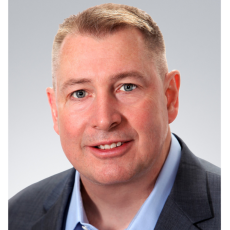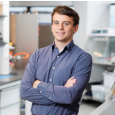How did your experience in the Marine Corps influence your decision-making and leadership style in your current role at Kyowa Kirin?
During my time in the Marine Corps, I was given the great responsibility of leading a group of fellow Marines at a very young age. This experience was transformative, instilling in me a deep sense of responsibility for others and teaching me the importance of forming a cohesive unit from a group of individuals with diverse backgrounds and beliefs. These early leadership challenges helped me mature and ingrained a set of principles that have profoundly influenced my approach to leadership throughout my career.
I have always felt a lifelong calling to fight for, and protect, those who are vulnerable. This drove my passion for mental health and neurology, from early in my pharmaceutical career. Here, at Kyowa Kirin, our focus is shifting increasingly towards rare diseases, where we hope to provide transformative treatments for patients who often have very limited or no treatments available. This shift is driven by the recognition that approximately 25-30 million Americans suffer from a rare disease, yet only about 5% have access to treatments. So I feel like the work we do is very aligned with my desire to help others in need.
North America is now the fastest growing region of Kyowa Kirin. What plans are in place to sustain and accelerate this growth?
Kyowa Kirin has experienced remarkable growth in North America, with a 175% increase in revenues since 2019. This success is attributed to our innovative therapies and focus on rare diseases. And we see growth continuing through this decade – thanks to a product portfolio that promises continued exclusivity and the potential for more innovations to come from our pipeline. Our strategy also includes leveraging new acquisitions and partnerships to further enhance our growth. The acquisition of Orchard Therapeutics, for example, strengthens our position in gene therapies for rare genetic disorders. Our emphasis on scientific innovation, coupled with the uniqueness of our marketed products, positions us for sustained success and presents opportunities for us to make more significant contributions to the biopharmaceutical landscape.
Can you highlight some areas of innovation within Kyowa Kirin’s pipeline that you find particularly exciting?
Our clinical pipeline includes several bispecific treatments that are being investigated for solid tumors and a potentially novel treatment for diabetic macular edema. We are also working with Amgen to advance a potential first-in-class treatment for inflammatory conditions. These assets – all discovered in our labs - are significant for their potential to address critical unmet medical needs, and underline our company’s large investment in research and development, which amounted to over $500 million in the last fiscal year. Despite being relatively unknown in North America until recently, our efforts to build capacity for novel drug discovery and commercialization have been vigorous.
Focusing on the rare disease space enables us to target investments into meeting patients' needs with precision and empathy, often touching lives in profound ways. Our work to bring these innovations to patients extends beyond scientific achievement; it is about the real-world impact we hope to have on individuals and their families.
With Kyowa Kirin’s acquisition of Orchard Therapeutics, how does this move fit into the broader strategy, particularly concerning rare diseases?
Orchard Therapeutics’ hematopoietic stem cell (HSC) gene therapy platform platform represents a pivotal addition to our portfolio and is aligned to our strategy, emphasizing the development of innovative treatments for devastating rare and genetic diseases. Orchard and Kyowa Kirin share a common goal to deliver life-changing value to patients. Every time I hear patient stories firsthand, such as when I joined the XLH conference last year, it underscores the profound difference our work makes in people’s lives. Those stories motivate us to continue our focus on rare diseases and doing what we can to positively change lives.
The topic of drug affordability is highly sensitive and complex. Given Lenmeldy, a new gene therapy from recently acquired Orchard Therapeutics, has a list price of USD 4.2 million and is currently the most expensive drug on the market, how does the team ensure accessibility to such critical treatments?
Addressing the affordability of treatments is a complex yet crucial aspect of our mission. The pricing really reflects the profound impact HSC gene therapies can have—helping transform a fatal, devastating disease into something that may be addressed with a one-time treatment. It also recognizes the significant investment required to bring such innovative, personalized treatments to market for an ultra-rare disease that affects very few patients worldwide.Our approach to ensuring access to these treatments involves comprehensive strategies, including negotiating contracts with insurers, qualifying treatment centers, and implementing a patient support program to ensure eligible patients can receive the treatment they need in time. This commitment underscores our dedication to balancing the value of innovation with our ethical responsibility to patient care, ensuring that advancements in rare disease treatment are accessible to those who need them most.
Looking ahead, what is your vision for Kyowa Kirin in the next decade, and how do you plan to achieve it?
My vision for Kyowa Kirin North America is not centered on the size of the company but on leading the rare disease sector by 2030. To achieve this, we are doubling our investment in research and development, focusing on our opportunities to deliver cutting-edge advanced therapies, like cell and gene therapies. We are also making investments in commercial capabilities aimed at easing the diagnostic odyssey for patients living with rare diseases. Our dedication to innovation, particularly in areas with limited or no existing treatments, is unwavering. We aim to be recognized for our expertise in the diseases we address and our commitment to the patient populations we serve.
What drives your commitment to defending those who cannot defend themselves?
My motivation comes from a belief that society would benefit if we cared more for each other. I think this ethos led to many successes in the pharmaceutical industry. Our work requires a deep passion and commitment to helping those who are unable to help themselves. Reflecting on the difficult journeys of rare disease patients, underscores the value our work has for others.






